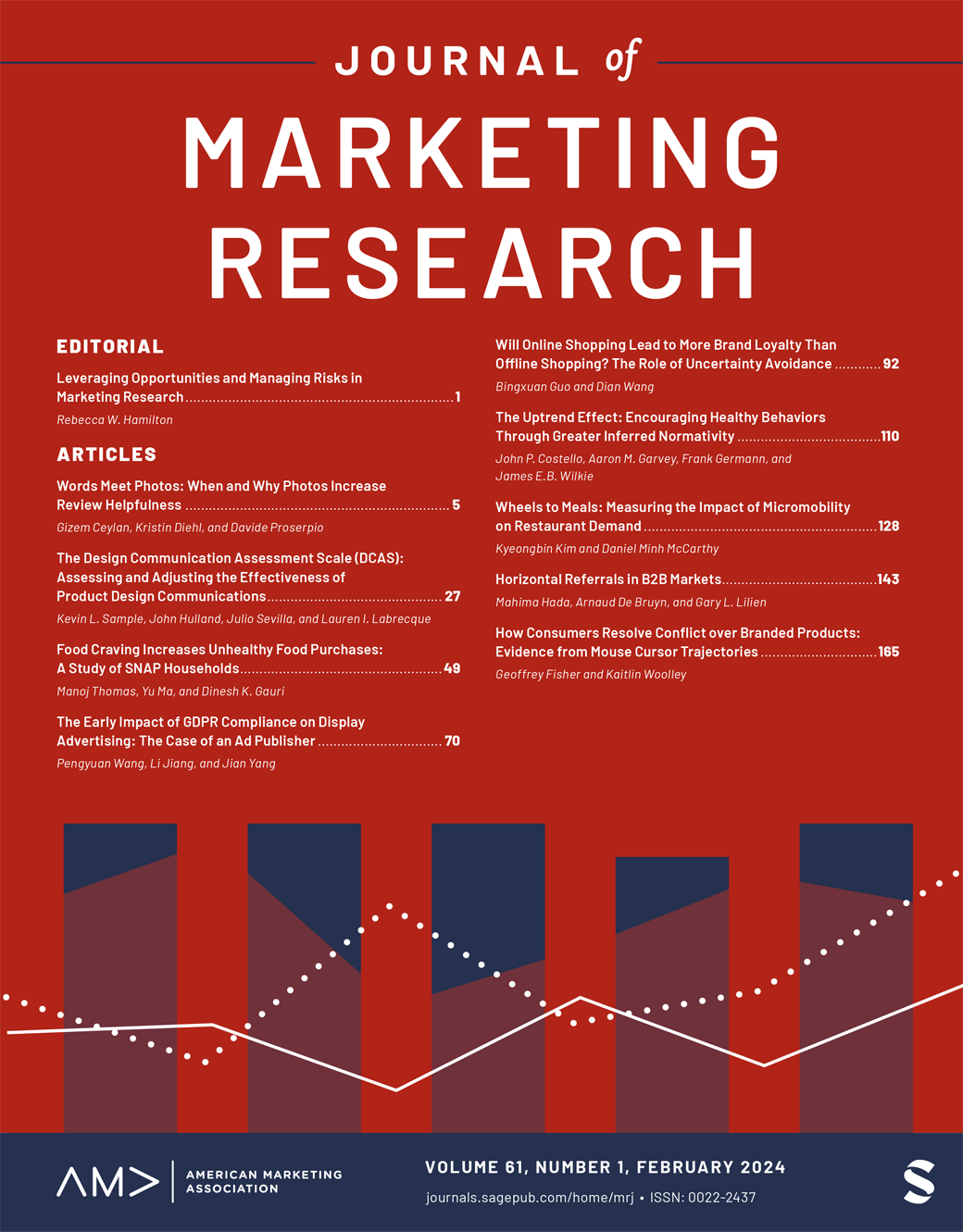在线搜索中的解释匹配:应用文本分析来阐明消费者的决策过程
IF 5
1区 管理学
Q1 BUSINESS
引用次数: 42
摘要
当消费者在他们的决策过程中移动时,他们会采用不同的目标(例如,事务性与信息性)。在这项研究中,作者提出消费者的目标可以通过在线搜索查询的文本分析来检测,并且当付费搜索结果和广告与消费者搜索相关的目标相匹配时,营销人员和消费者都可以受益。在连接解释水平理论和文本分析的过程中,作者表明,在决策过程的不同阶段,消费者倾向于假设不同层次的心理解释或心态(即抽象与具体)。他们发现了在线搜索中流畅性驱动匹配效应的证据,当消费者的思维方式更抽象(更具体)时,消费者生成的文本搜索查询使用更抽象(更具体)的语言。此外,他们更有可能点击与他们的心态相匹配的搜索引擎结果和广告内容,从而体验到更多的搜索满意度,并感知到更大的目标进展。六项实证研究,包括一项试点研究、一项调查、三项实验室实验和一项涉及128,000多个广告印象的现场实验,为在线搜索中的这种解释匹配效应提供了支持。本文章由计算机程序翻译,如有差异,请以英文原文为准。
Construal Matching in Online Search: Applying Text Analysis to Illuminate the Consumer Decision Journey
As consumers move through their decision journey, they adopt different goals (e.g., transactional vs. informational). In this research, the authors propose that consumer goals can be detected through textual analysis of online search queries and that both marketers and consumers can benefit when paid search results and advertisements match consumer search–related goals. In bridging construal level theory and textual analysis, the authors show that consumers at different stages of the decision journey tend to assume different levels of mental construal, or mindsets (i.e., abstract vs. concrete). They find evidence of a fluency-driven matching effect in online search such that when consumer mindsets are more abstract (more concrete), consumers generate textual search queries that use more abstract (more concrete) language. Furthermore, they are more likely to click on search engine results and ad content that matches their mindset, thereby experiencing more search satisfaction and perceiving greater goal progress. Six empirical studies, including a pilot study, a survey, three lab experiments, and a field experiment involving over 128,000 ad impressions provide support for this construal matching effect in online search.
求助全文
通过发布文献求助,成功后即可免费获取论文全文。
去求助
来源期刊

Journal of Marketing Research
BUSINESS-
CiteScore
10.30
自引率
6.60%
发文量
79
期刊介绍:
JMR is written for those academics and practitioners of marketing research who need to be in the forefront of the profession and in possession of the industry"s cutting-edge information. JMR publishes articles representing the entire spectrum of research in marketing. The editorial content is peer-reviewed by an expert panel of leading academics. Articles address the concepts, methods, and applications of marketing research that present new techniques for solving marketing problems; contribute to marketing knowledge based on the use of experimental, descriptive, or analytical techniques; and review and comment on the developments and concepts in related fields that have a bearing on the research industry and its practices.
 求助内容:
求助内容: 应助结果提醒方式:
应助结果提醒方式:


